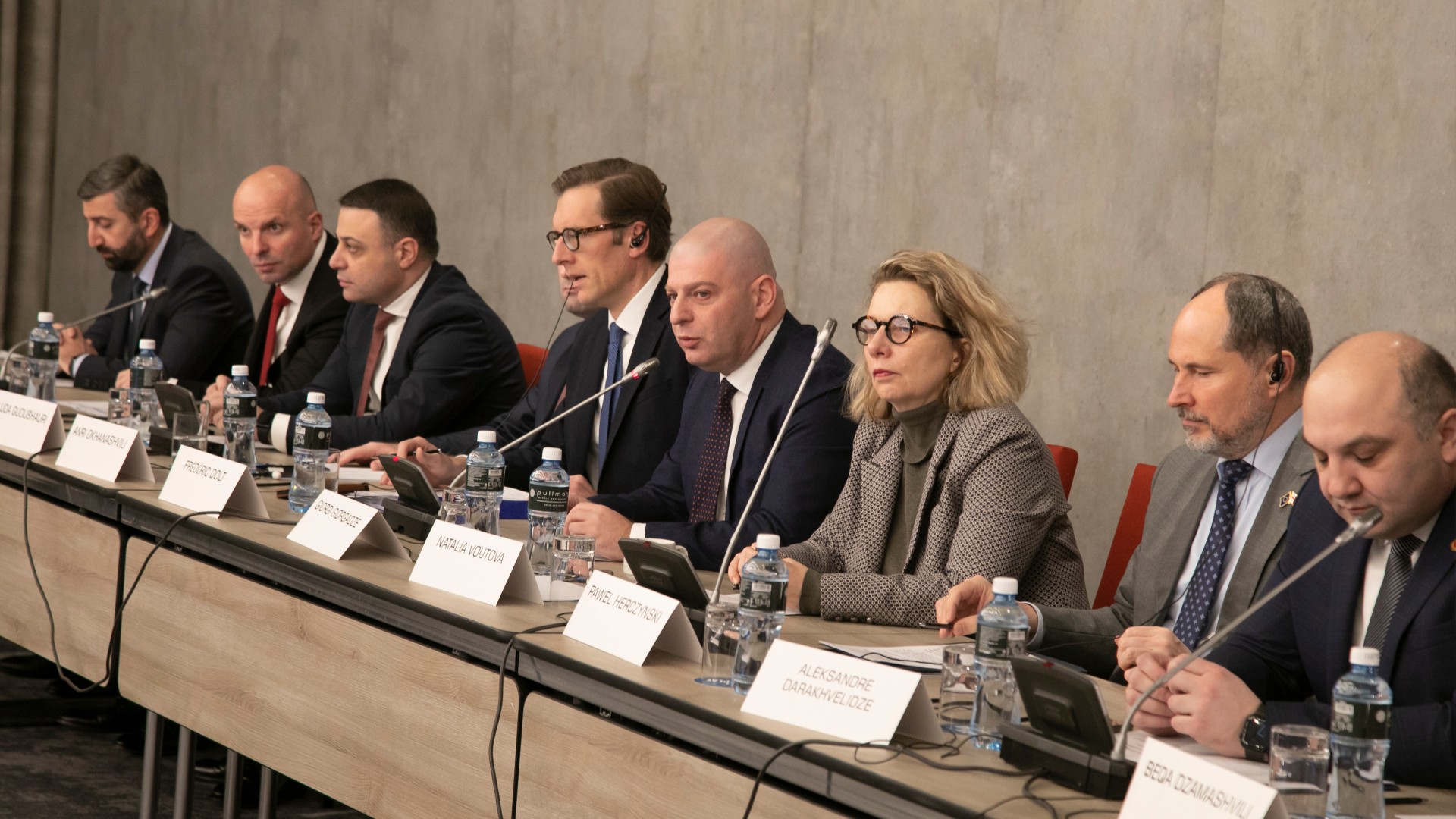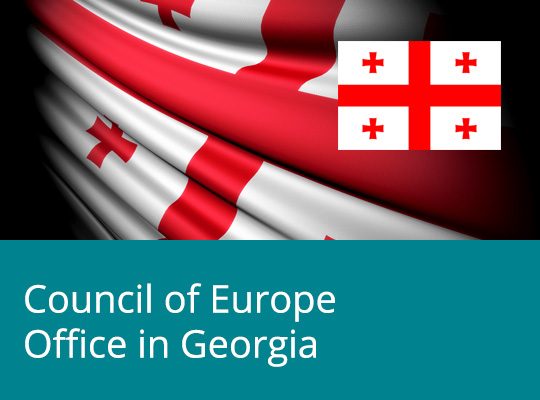Tbilisi, 24 November 2022 – Protection of victims’ and other vulnerable persons’ rights, the system of pre-trial measures and conduct of investigative actions are the areas which should be paid special attention to during the ongoing criminal justice reform in Georgia, underlined participants of the high-level conference “Criminal Justice legal framework: Areas for further improvement and ongoing reform in Georgia” held by the European Union and the Council of Europe in Tbilisi today.
Natalia Voutova, Head of the Council of Europe Office in Georgia; Pawel Herczynski, Ambassador of the European Union to Georgia; Frédéric Dolt, Head of Department for the Implementation of Human Rights, Justice and Legal Cooperation Standards, Council of Europe; Anri Okhanashvili, Chairperson of the Legal Issues Committee of the Parliament; Aleksandre Darakhvelidze, Deputy Minister of Internal Affairs of Georgia; Beqa Dzamashvili, Deputy Minister of Justice; Shalva Tadumadze, Deputy Chairperson of the Supreme Court of Georgia; Bakur Abuladze, First Deputy of the General Prosecutor of Georgia and Davit Asatiani, Chairperson of Georgian Bar Association delivered opening speeches at the event.
The event participants discussed legislative and practical issues to be addressed for the further improvement of the criminal justice legislative framework, including outstanding issues requiring effective actions by the authorities in the context of the execution of judgments of the European Court of Human Rights.
International consultants presented the key findings of the review “Compatibility of the Criminal Procedure Code of Georgia and related legislative provisions with European standards” carried out by the Council of Europe. The following areas require further improvement, the review showed:
- The approach to drafting of legal acts;
- The protection of the interests of victims and vulnerable persons;
- The conduct of investigative actions;
- The imposition of measures of restraint;
- The conduct of plea bargaining;
- Ensuring equality of arms and adversarial procedure;
- The arrangements for jury trial.
The Delegation of the European Union to Georgia and the Council of Europe reiterated their support to judicial reform in order to further improve the criminal justice system and ensure an effective, fair and transparent criminal process.
Pawel Herczynski, Ambassador of the European Union to Georgia spoke about the importance of human rights and the rule of law as criteria in the EU enlargement process: “The rule of law and human rights are also key criteria in the EU’s enlargement process. In view of Georgia’s application for membership, the compatibility of the Georgian criminal justice system with European standards is thus of the essence”, said he.
Natalia Voutova, Head of the Council of Europe Office in Georgia: “Participation and engagement of Georgian authorities in the conference is an undeniable proof of the high interest to bring criminal justice system closer to best European models; We encourage the Georgian authorities to continue to work on further improvement of criminal justice system, which includes the draft law on separation of powers between investigation and prosecution, the reform of substantive Criminal Code and the reform of Administrative Offences Code.”
Anri Okhanashvili, Chairperson of the Legal Issues Committee of the Parliament: “I would like to express gratitude towards the European Union and the Council of Europe for support of Georgia, especially in the perspective of strengthening the rule of law. We are here today to discuss reform issues in the field of criminal justice. The field of criminal law is a diverse field, where not only in Georgia, but within Europe, changes are taking place at a rapid pace. This applies to both substantive and procedural criminal law. From this perspective this type of meeting is especially important to share experience, to hear the views and assessments of the experts and from our side to do everything in order to bring the Georgian criminal law even closer to the European legal space.”
Members of the parliament, international donor organisations, judges of the Supreme Court of Georgia, prosecutors, lawyers, media and civil society representatives also attended the event.
“This conference is held as part of the project “Supporting the Criminal Justice Reforms - Tackling Criminal Aspects of the Judicial Reforms in Georgia”, funded by the European Union and the Council of Europe and implemented by the Council of Europe in their Partnership for Good Governance II 2019-2022.”




